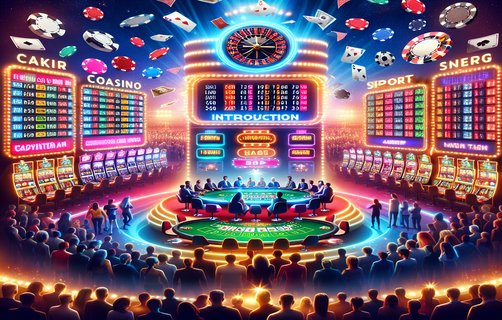The Mechanics of Game Strategies: An In-Depth Analysis
खेल रणनीतियों का तंत्र: एक गहन विश्लेषण
In modern gaming, the interplay between chance and strategy deeply affects gameplay dynamics. Central to this interaction is the concept of dice, a fundamental tool that introduces randomness into games, allowing players to embrace uncertainty and adaptability. The incorporation of randomized actions serves to augment the thrill and unpredictability, enhancing player engagement and necessitating quick thinking and decision-making.
The randomness factor is crucial as it determines how much luck influences game outcomes. Games that rely heavily on dice and chance can create wildly different experiences in each session, promoting replayability and varying strategies. This randomness mandates that players not only strategize based on their own potential moves but also anticipate and adapt to the evolving situations caused by unexpected dice results.
Another essential component examined is player tokens, which represent individual players in a game and often carry unique abilities or advantages. The design and implementation of these tokens can affect gameplay by providing players with various strategies. A well-balanced game allows for all tokens to remain competitive, encouraging players to explore different paths without any option becoming overwhelmingly dominant.
Time rules govern the pace of the game, ensuring that no single player dominates due to extensive planning or analysis paralysis. This balance keeps the game moving and maintains engagement among all participants, allowing for a more structured unfolding of the gameplay.

Resource zone splits are equally important as they outline how resources are allocated and accessed throughout the game. This can affect player strategies based on proximity to resources and the competition for essential assets. Successful navigation of resource zones can catalyze a significant advantage, driving players to rethink their positioning and decision-making constantly.
The role of the minister or leader within the game setting is vital. This figure can introduce rules, adjust the resource allocation, or regulate player interactions, creating an environment that fosters collaboration or intensifies competition. The minister can significantly influence player behavior and overall strategy, acting as a balancing force or a rule enforcer.

Game coins, which often represent various forms of currency or points within the game, are instrumental in shaping strategy. Players must decide when and how to spend their coins, balancing short-term gains with long-term strategies. The management of game coins interlinks with other game elements, crafting a complex web of decisions that enhance the overall gaming experience.

comments
GamerGuru
The analysis of game dynamics using randomness and player strategy is fascinating!
DiceDodger
I love how resource zones influence player decisions and strategies.
StrategistSam
It's interesting to see how the minister role changes game balance!
LuckyCharm
Great insights on managing game coins and their impact on gameplay!
TacticalTina
Time rules are so crucial for keeping the game engaging!
RandomRoller
I never thought about how player tokens shape gameplay before. Very enlightening!